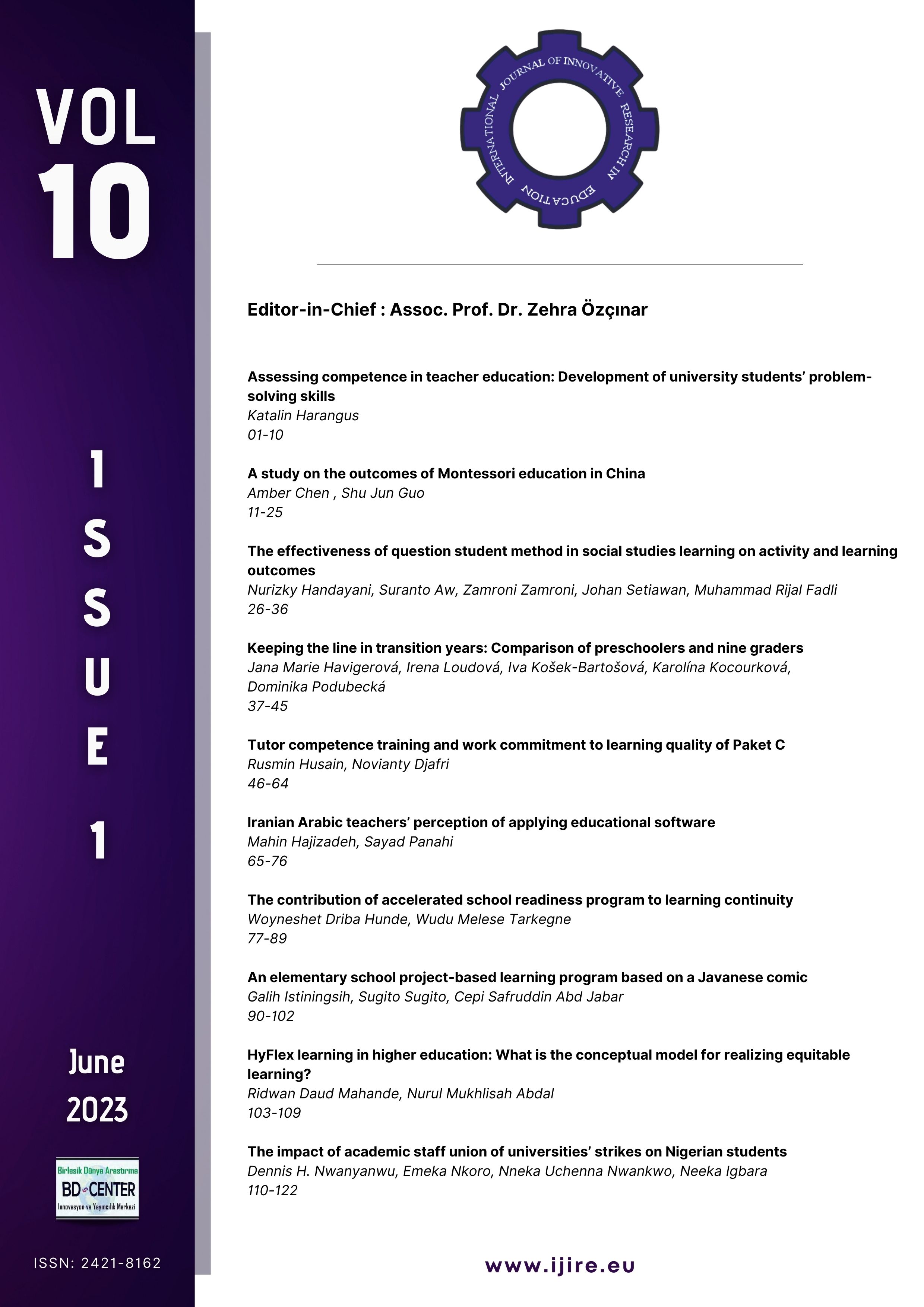HyFlex learning in higher education: What is the conceptual model for realizing equitable learning?
Main Article Content
Abstract
HyFlex learning is a hybrid learning transformation where this term is new, but the modality has been applied during the COVID-19 Pandemic and is being prepared for future learning. However, the main problems and challenges related to student’s needs, expectations, cognitive learning styles, and pedagogical equity. This must be the highest consideration in determining the content, strategy, and choice of the best HyFlex learning mode. The student preferences need to be applied face-to-face, online synchronous, or online asynchronous. Therefore, this study is critical to providing solutions to the problems. This study uses a theoretical approach to cognitive learning styles, HyFlex learning modes, and pedagogy equity. This study produces a conceptual model of the interaction of HyFlex learning with an equitable cognitive learning style. This study becomes the essential reference for further empirical studies to make a final model that will become a reference for institutions, lecturers, and learning designers to formulate policies, establish strategies/methods and provide feedback in the development of systems, content, and adaptive learning processes in an effective HyFlex learning environment equitable today and in the future.
Keywords: HyFlex learning; Kirton’s cognitive theory; Felder-Silverman learning styles; equitable learning
Downloads
Article Details

This work is licensed under a Creative Commons Attribution 4.0 International License.
The International Journal of Innovative Research in Education is an Open Access Journal. All articles can be downloaded free of charge. Articles published in the Journal are Open-Access articles distributed under CC-BY license [Attribution 4.0 International (CC BY 4.0)].
Birlesik Dunya Yenilik Arastirma ve Yayincilik Merkezi (BD-Center) is a gold open access publisher. At the point of publication, all articles from our portfolio of journals are immediately and permanently accessible online free of charge. BD-Center articles are published under the CC-BY license [Attribution 4.0 International (CC BY 4.0)], which permits unrestricted use, distribution, and reproduction in any medium, provided the original authors and the source are credited.
